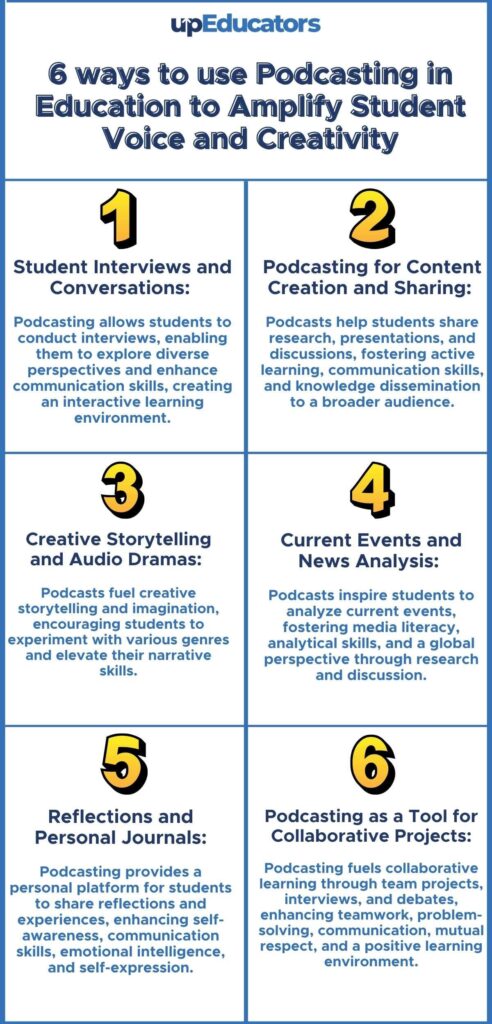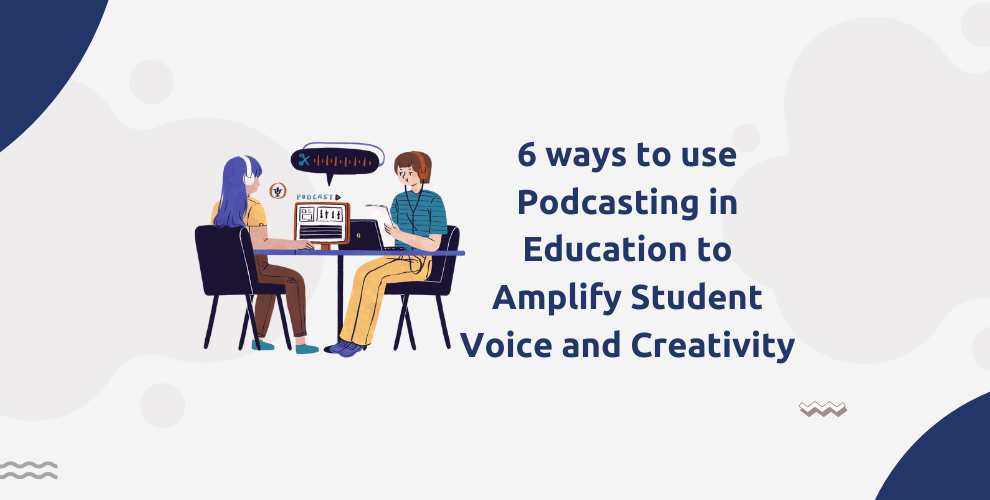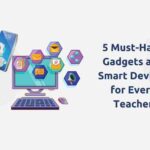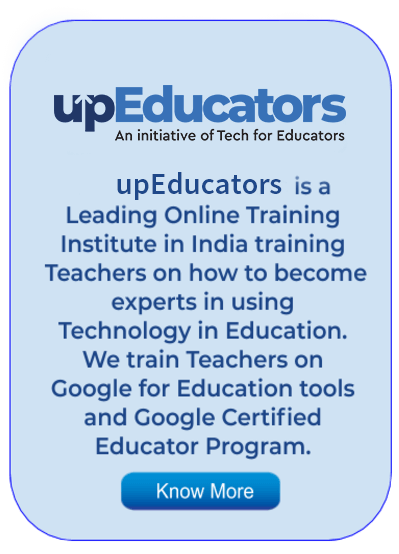Ms Nidhi, an enthusiastic English teacher, cherished nurturing her students’ creativity and individuality. Seeking to provide them with a platform for self-expression, she embarked on an innovative adventure into the world of podcasting.
Beginning with a simple podcast where her students discussed their favourite books, the show quickly gained popularity, captivating not only their peers but also teachers and parents.
As the podcast flourished, Ms Nidhi realized its immense potential to amplify her students’ voices and encourage creativity beyond the confines of the classroom.

Podcasting is all the rage these days and it can be an excellent tool for education. In this blog, we explore six extraordinary ways podcasting can revolutionize education, empowering students to share their narratives, participate in profound conversations, and unleash their imaginations. Join us as we discover the transformative power of podcasting in education.
Six Ways to Use Podcasting in Education
Student Interviews and Conversations:
Podcasting provides a unique platform for students to conduct interviews and engage in insightful conversations with their peers, teachers, experts, or even members of the community. By taking on the role of interviewers and guests, students enhance their communication skills and learn to actively listen and respond thoughtfully. These interviews allow students to explore diverse perspectives and share meaningful experiences, fostering empathy and understanding. Additionally, student-led interviews create a sense of empowerment, as students take ownership of their learning and contribute to the collective knowledge of the class or school community.
Podcasting for Content Creation and Sharing:
Podcasting enables students to research, script, record, and edit their own content on various topics. Whether it’s presenting a science experiment, summarizing historical events, or analyzing literary works, students can showcase their understanding in a dynamic and engaging manner. This hands-on approach encourages critical thinking and helps students organize their thoughts effectively. Sharing their podcasts with a broader audience, such as fellow students, parents, or online platforms, instils confidence and encourages pride in their work.
Creative Storytelling and Audio Dramas:
Podcasting opens the door to creative storytelling through audio dramas or fictional narratives. Students can develop characters, build plots, and explore imaginative worlds through sound effects and voice acting. Engaging in audio storytelling hones their storytelling abilities and nurtures creativity. Moreover, collaborating with peers on audio dramas promotes teamwork and enhances communication skills as students work together to produce captivating and entertaining content.
Current Events and News Analysis:
Podcasting offers a platform for students to discuss and analyze current events and news stories. By researching and critically examining various topics, students develop media literacy and gain insights into the complexities of the world around them. Sharing their perspectives on important issues fosters civic engagement and encourages active participation in discussions about global affairs and societal challenges.
Reflections and Personal Journals:
Podcasting serves as a digital journal where students can reflect on their learning experiences, personal growth, and emotions. Recording reflections allows for self-expression and introspection, providing a valuable tool for self-awareness and mindfulness. As students listen back to their own recordings, they can assess their progress and set goals for improvement, fostering a growth mindset.
Podcasting as a Tool for Collaborative Projects:
Podcasting lends itself to collaborative projects, where students work in teams to create informative, entertaining, or persuasive content. Collaborative podcasts can involve debates, panel discussions, or research projects, allowing students to pool their knowledge and skills. Such projects teach students how to work effectively in groups, resolve conflicts, and leverage each other’s strengths. Additionally, collaborative podcasting nurtures a sense of community and encourages students to value diverse perspectives.
By incorporating these six approaches, educators can harness the power of podcasting to amplify student voices and creativity in education. From enhancing communication skills to fostering collaboration and critical thinking, podcasting empowers students to become confident, expressive, and engaged learners in the 21st century.
Author: This article is written by Samiya Rashid for upEducators blog.




